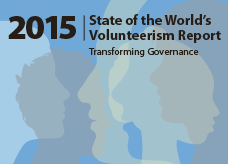 There will be a conference in Brussels, Belgium on 13 October 2016 regarding the possible role of volunteer engagement in promoting inclusion and preventing extremism.
There will be a conference in Brussels, Belgium on 13 October 2016 regarding the possible role of volunteer engagement in promoting inclusion and preventing extremism.
Examples from across Europe and beyond, such as from South Africa, Colombia and Algeria, will be reviewed to explore ways that volunteerism has contributed to building trust and social cohesion. The conference will also discuss elements and factors that are essential for success in such endeavors. The examples will be included in a publication that “will offer analysis of the challenges faced in Europe concerning social inclusion and the risks of extremism from different belief groups and explain how the volunteer projects contribute to addressing these issues.”
The conference is being promoted by the European Volunteer Centre (CEV), supported by the European Commission. The event will be organised in the framework of the Slovak Presidency of the Council of the European Union and with the support of London House and Team London (European Volunteering Capital 2016).
There are lots of ways for an organization that involves volunteers to be thinking about inclusiveness in its volunteer engagement, even if social cohesion or community building isn’t explicitly stated in its mission. For instance:
- An organization may be unintentionally making certain volunteers feel unwelcomed because of its language. It’s worth asking yourself: do you welcome people with your language in event invitations, your volunteer recruitment messages, etc.?
- Do you reach out to minority communities specifically regarding volunteer recruitment efforts, and do you work with people from those groups so they can be advocates for volunteering with your organization?
- Have employees and volunteer leaders at your organization been trained regarding unconscious bias? Have they attended events at religious sites or cultural centers for groups they are not a part of?
- Do you know when important holy days are for the various religions represented in your community and do you make sure that you don’t schedule critical volunteer events and meetings during those days?
- Would it be appropriate for your organization to create an inter-faith volunteering activity, like Habitat for Humanity‘s or this effort to help a school serving a high-poverty area in Detroit?
Also see these related resources:
- UN, NGO efforts to counter hate
- Recommendations for UN & UNDP in Ukraine to use Twitter, Facebook, Blogs and Other Social Media to Promote Reconciliation, Social Inclusion, & Peace-Building in Ukraine (PDF)
- Apps to facilitate dialogue, prevent conflict
- UNDP Technology for Citizen Engagement Challenge
- Reconciliation




